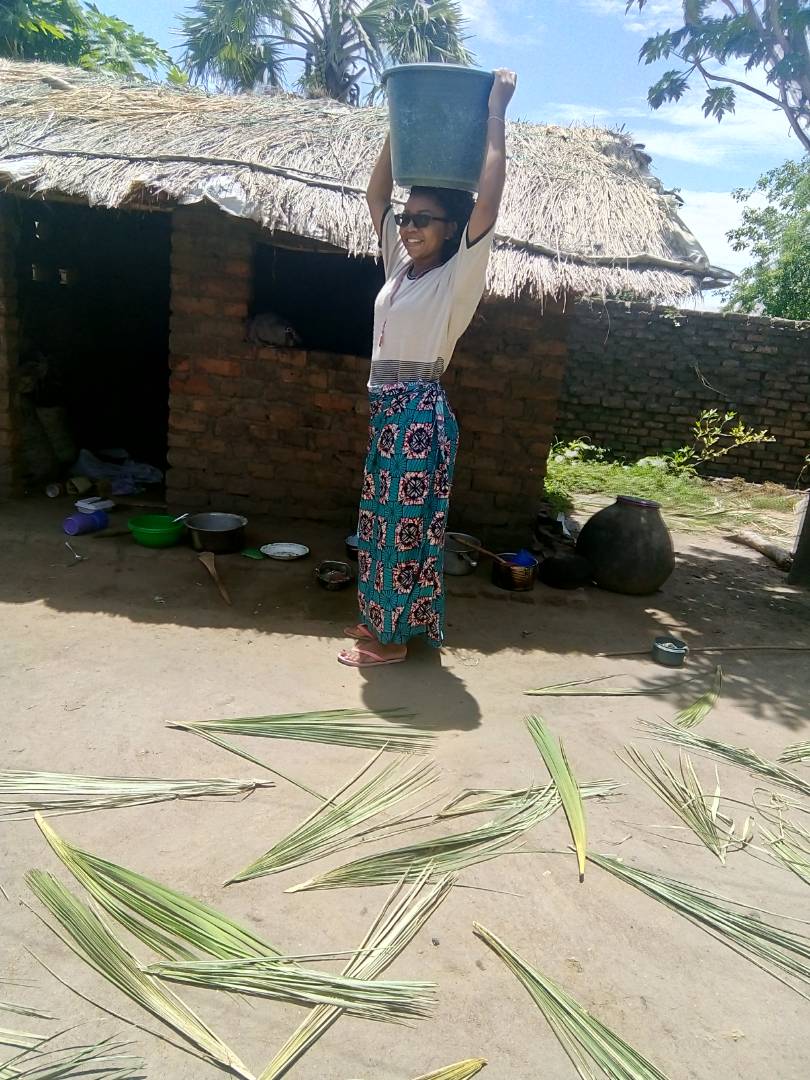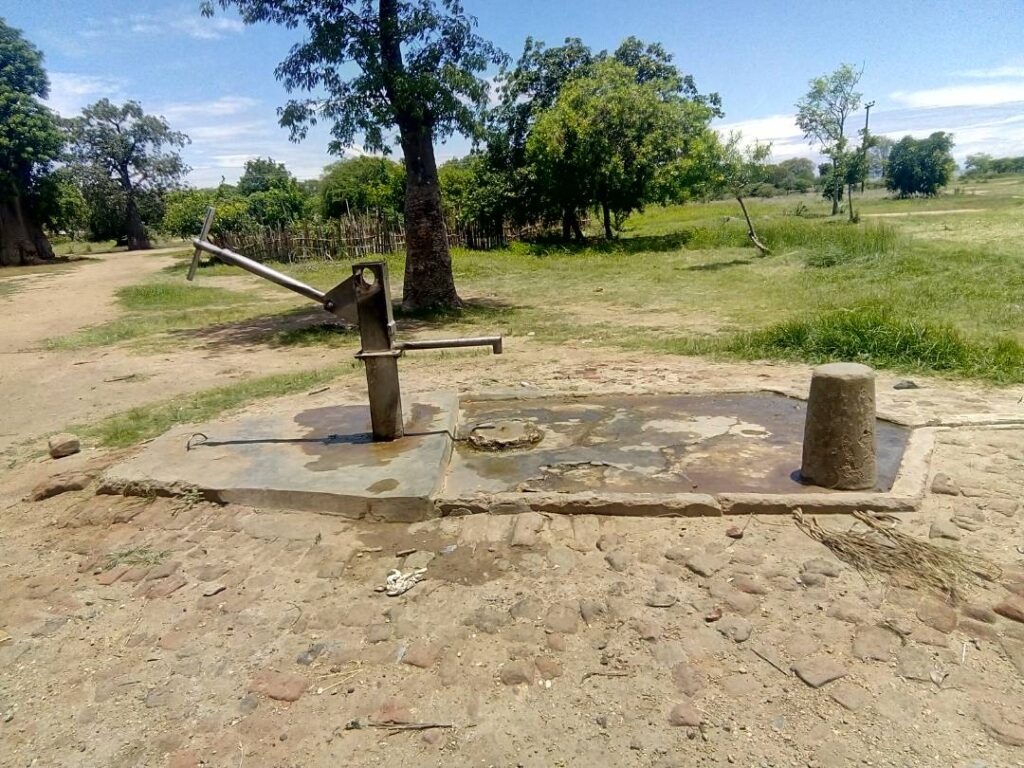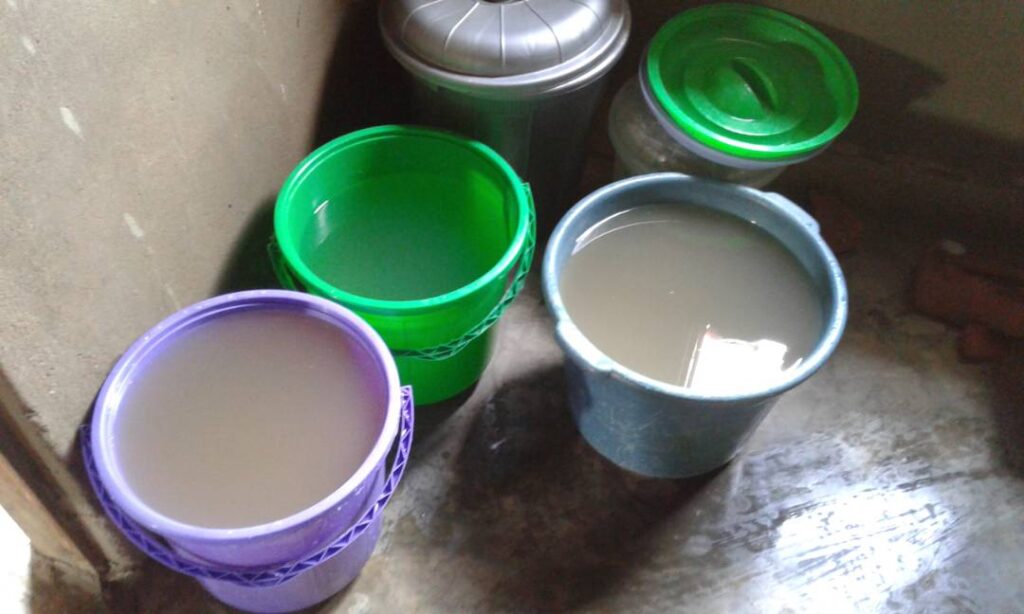Written by CorpsAfrica/Malawi Volunteer Ms. Ruth Chamangwana
Never in my life did I imagine that I would become a pro at carrying a bucket on my head, but I decided to embrace drawing water from the borehole as part of my physical exercise and I must say I enjoy it. The borehole is approximately five minutes away from my house, however, this is not the case with most households. My community has about four functioning boreholes, but the one that is close to my house produces the tastiest water of them all. The water tastes like store-bought bottled water. I was AMAZED. The other three boreholes produce water so salty that it leaves you looking all ashy after a bath.
All was rosy until a week ago when the community’s favorite borehole was damaged. I was told that in such circumstances, people buy water from the nearest household with a tap. A bucket of water costs K30 and a big basin costs K50. Right when I decided to go buy water from the tap, the electricity had gone out, hence no tap water. I almost cried. The only option was to draw water from the salty borehole, so I did. When I tried to drink the water I couldn’t swallow the first sip. The water was just too salty.
In the evening and the electricity was back on, I managed to buy some water at the taps. As I collected my water, I watched with sadness as some community members made their way to the lake to draw water. The fact that the lake is used to wash clothes and dishes makes the water seem unhygienic for consumption. Ordinarily, this wouldn’t make me sad, but the fact that my community members would rather drink dirty water from the lake than consume the salty water from the boreholes is a problem.
The second day without our dear borehole was as slow as the first day. I collected my bucket and proceeded to buy water. I was so shocked to see the type of water that fell into my bucket. I couldn’t believe it. It was so dirty that I couldn’t bring myself to drink it. One lady told me that once it rains the lake becomes dirty, and since the water from the taps is pumped directly from the lake, the tap produces dirty water. The same lady told me that it was a good thing that the borehole got broken so that I could see the problems my community members go through to access quality water.
To sum it all up, the lack of safe drinking water is responsible for the rise in diarrhea cases in my community. There is a need to engage the people in sensitization campaigns where they are taught what “safe” drinking water is, and how to prevent waterborne diseases. It is also clear that new water sources such as boreholes (with tasty water) are needed since there is such a lack of good water currently.



